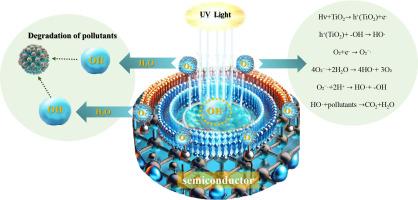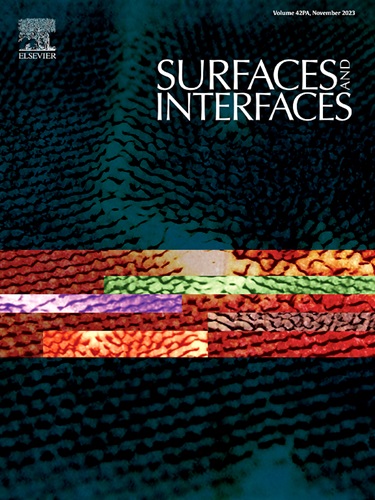光催化深度氧化技术在环境污染修复和能源转化中的应用进展、挑战和未来方向
IF 6.3
2区 材料科学
Q2 CHEMISTRY, PHYSICAL
引用次数: 0
摘要
本文综述了光催化高级氧化工艺(P-AOPs)在环境修复和能量转化方面的最新进展、挑战和未来发展方向。P-AOPs是一种高效的绿色技术,利用光催化剂在光照下产生的氧化物质降解水中和空气中的有机污染物。它还显示出在能源转换方面的潜力,比如制氢和减少二氧化碳。近年来的研究成果包括新型光催化剂的设计、反应机理的研究、效率的提高和系统的优化。然而,催化剂稳定性、光能利用和污染物选择性等挑战依然存在。未来的重点将是创新材料、反应机理探索和体系优化。通过开发高效、稳定的光催化剂和优化条件,P-AOPs有望得到更广泛的应用。跨学科合作和综合技术应用将支持绿色、可持续的环境治理和能源利用。本文对P-AOPs的进一步研究和应用具有指导意义。本文章由计算机程序翻译,如有差异,请以英文原文为准。

Advancements, challenges, and future directions of photocatalytic advanced oxidation processes in environmental pollution remediation and energy conversion applications
This paper reviews recent advancements, challenges, and future directions of photocatalytic advanced oxidation processes (P-AOPs) in environmental remediation and energy conversion. P-AOPs, an efficient green technology, degrade organic pollutants in water and air using oxidative species generated by photocatalysts under light. It also shows potential in energy conversion, like hydrogen production and carbon dioxide reduction. Recent achievements include novel photocatalyst designs, reaction mechanism research, efficiency enhancements, and system optimization. However, challenges like catalyst stability, light energy utilization, and pollutant selectivity remain. Future focus will be on innovative materials, reaction mechanism exploration, and system optimization. By developing efficient, stable photocatalysts and optimizing conditions, P-AOPs aim for wider application. Interdisciplinary collaboration and integrated technology use will support green, sustainable environmental governance and energy utilization. This paper guides further research and application of P-AOPs.
求助全文
通过发布文献求助,成功后即可免费获取论文全文。
去求助
来源期刊

Surfaces and Interfaces
Chemistry-General Chemistry
CiteScore
8.50
自引率
6.50%
发文量
753
审稿时长
35 days
期刊介绍:
The aim of the journal is to provide a respectful outlet for ''sound science'' papers in all research areas on surfaces and interfaces. We define sound science papers as papers that describe new and well-executed research, but that do not necessarily provide brand new insights or are merely a description of research results.
Surfaces and Interfaces publishes research papers in all fields of surface science which may not always find the right home on first submission to our Elsevier sister journals (Applied Surface, Surface and Coatings Technology, Thin Solid Films)
 求助内容:
求助内容: 应助结果提醒方式:
应助结果提醒方式:


